The National Renewable Energy Platform (NREP) continues to play a central role in harmonizing efforts within Uganda’s renewable energy sector. As a national coordination mechanism, NREP brings together government actors, private sector players, and development partners to drive progress in sustainable energy transitions. One of its flagship interventions is the Behavioural Change Communication for e-Cooking (BCCeC) project, implemented in collaboration with the Ministry of Energy and Mineral Development (MEMD) and Uganda National Alliance on Clean Cooking (UNACC). The project is funded by the UK’s Foreign, Commonwealth & Development Office (FCDO) through the Modern Energy Cooking Services (MECS) Programme.
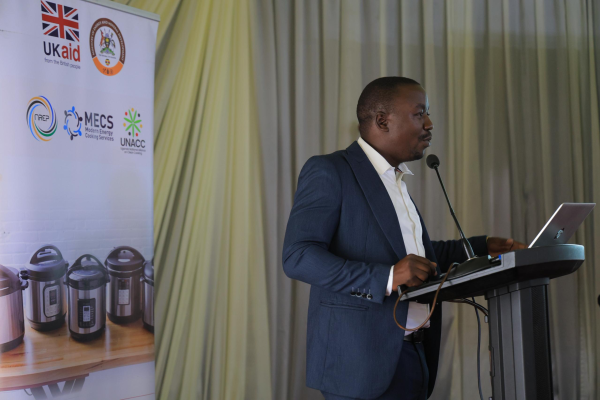
The BCCeC project targets multiple areas across Uganda, aiming to accelerate the adoption of electric cooking (e-cooking) and other clean cooking technologies such as improved cookstoves and briquettes. Central to this initiative is a strong focus on community engagement, awareness raising, and breaking down persistent myths around electric cooking. Speaking during the session, Dr. Nicholas Mukisa, emphasized that while e-cooking is a key focus, the platform is also promoting diverse clean cooking options, especially in areas where electric cooking may not yet be feasible.
An interesting trend emerging from project findings is the growing interest and participation of individuals aged 35–50 years, particularly school administrators, religious and cultural leaders, who are becoming vocal champions for clean cooking. Despite this, challenges remain especially around affordability, reliability and accessibility of electricity, and low awareness levels in rural communities. During the discussions, Ms. Cotilda from CARE Uganda pointed out an unexpected development: in several areas, men are adopting clean cooking technologies more than women. Dr. Mukisa acknowledged this trend, explaining that the increasing cost of charcoal has motivated men often household breadwinners to explore cheaper, cleaner cooking alternatives. He also highlighted that sales of electric cooking appliances tend to rise significantly after demonstration events, where users can directly interact with and understand the technologies when asked about the low sales numbers at these campaigns.
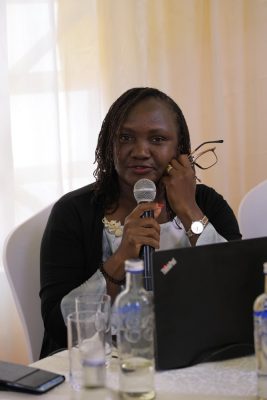
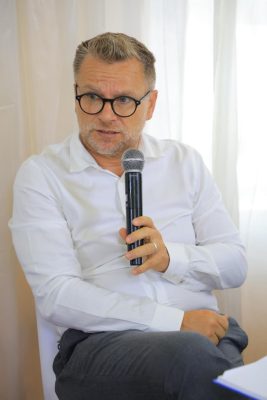
Participants also raised concerns about energy access in refugee settlements, where electricity reliability remains a major obstacle. Despite fundraising efforts and multiple interventions, the uptake of clean cooking is limited by both supply gaps and infrastructure challenges. One speaker noted that in one settlement alone, over 150 individuals have expressed demand for clean cooking solutions, but availability remains a challenge.
Dr. Mukisa responded by highlighting the role of the Electricity Access Scale-Up Project (EASP), through which clean cooking suppliers have been engaged and over 2,000 electric pressure cookers (EPCs) distributed to date. He reiterated that NREP is keen to work with partners to maximize synergies, avoid duplication, and scale impact where it’s most needed.
In addition to the clean cooking ecosystem atlas and knowledge management tools under development, Laura from Vesto Energy also presented the Fumba Hub website and app, a fully live platform offering broader functionality than the ecosystem atlas discussed earlier. The Fumba Hub is accessible to the public and features articles on clean cooking, which can be contributed by all registered users. While the platform welcomes user-generated content, all external sources are properly acknowledged to avoid copyright infringements.
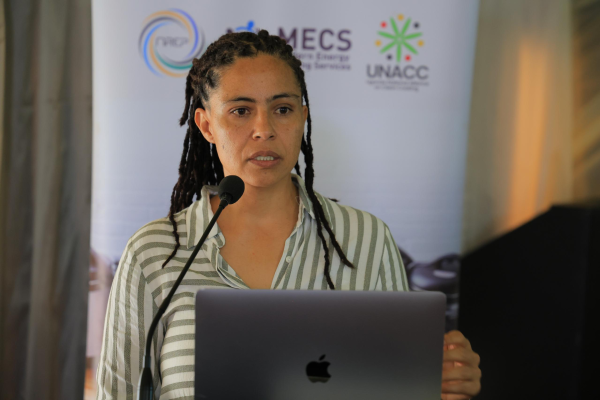
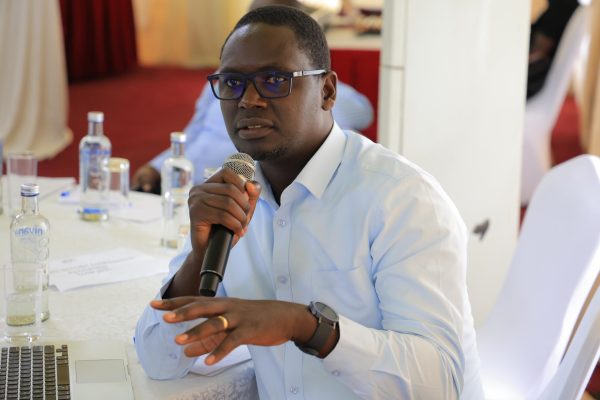
A key highlight of Fumba Hub is the analytics tab, which includes an interactive map showing clean cooking technologies and energy sources in use across different regions. This data is sourced from both research and user uploads, making it a dynamic and collaborative platform. Users can apply filters to analyze data by gender, energy source, region, and more. The platform also provides a repository of relevant documents, including policies, reports, and regulatory guidelines making it a valuable resource for all stakeholders in the sector.
In his closing remarks, Dr. Mukisa reaffirmed the importance of these platforms in consolidating clean cooking data and creating a reliable, shared knowledge hub for sector actors. He extended appreciation to all participants for their valuable contributions, particularly toward the development of the Knowledge Management System (KMS). He also welcomed partnerships and collaborations to help advance this shared vision of a cleaner, more sustainable cooking future for all Ugandans.


